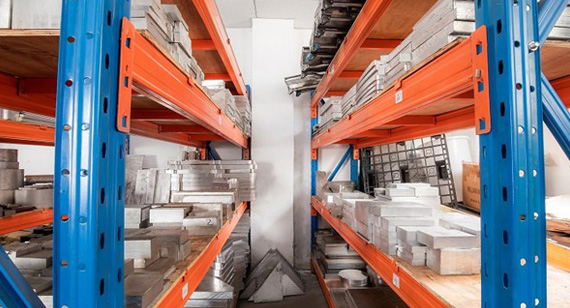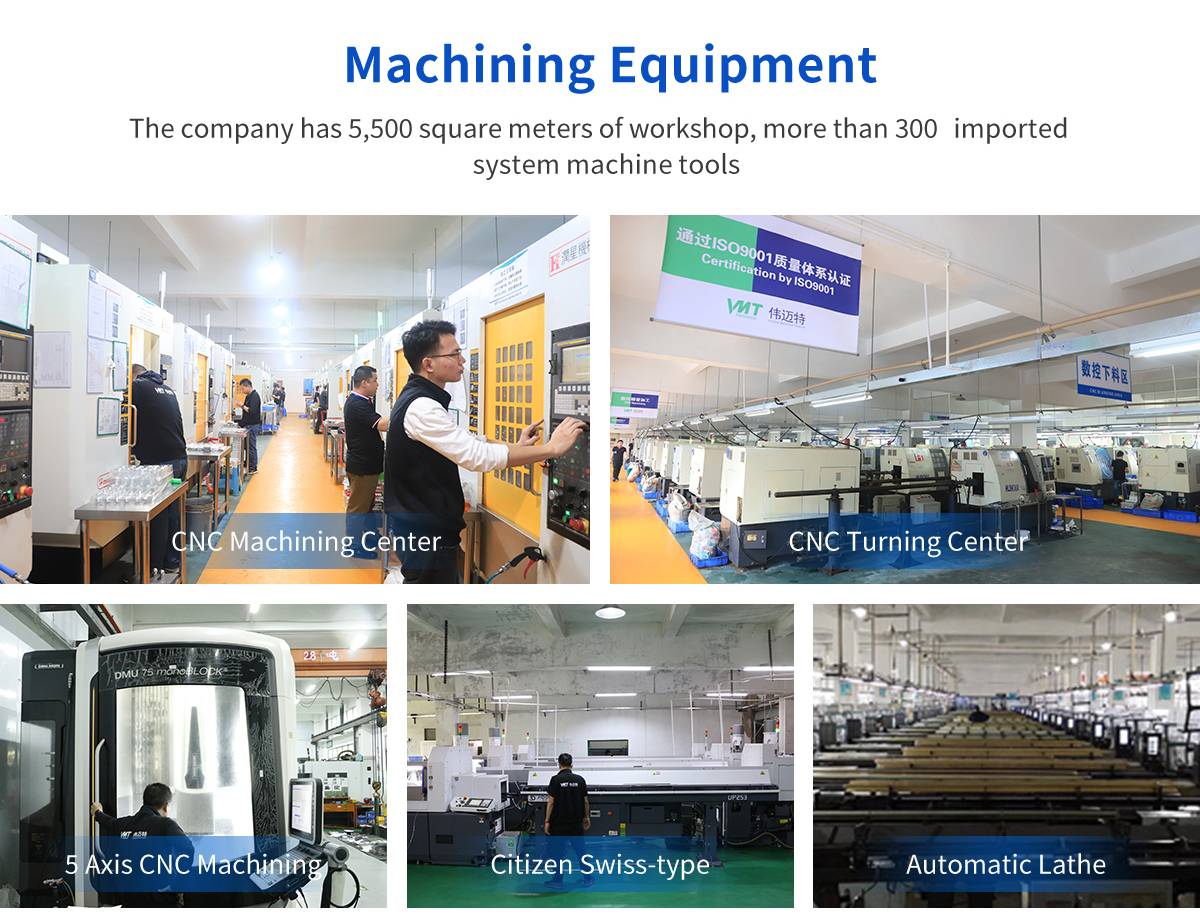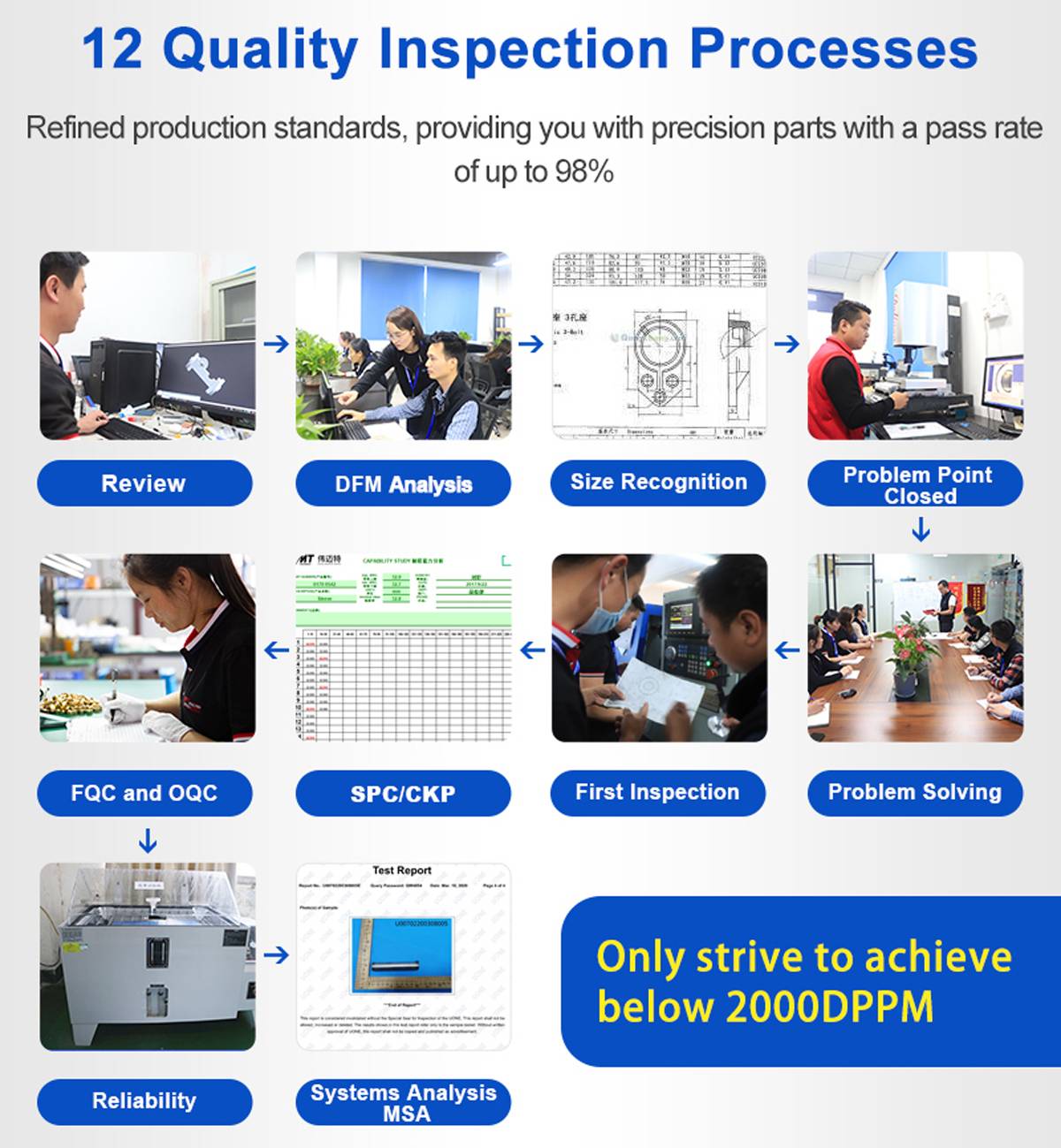15 years one-stop China custom CNC machining parts factory

Hey there I’m VMT Sam!
With 25 years of CNC machining experience we are committed to helping clients overcome 10000 complex part-processing challenges all to contribute to a better life through intelligent manufacturing. Contact us now
 122 |
Published by VMT at Jun 10 2024
122 |
Published by VMT at Jun 10 2024
Factors Influencing Tolerances of Precision CNC Machined Parts
Introduction
With the rapid development of the manufacturing industry, precision CNC machined parts find extensive applications in fields such as aerospace, automotive manufacturing, and precision instruments. Tolerance control of precision CNC machined parts is a critical factor in ensuring product quality and performance. This article aims to explore the factors that have the greatest impact on tolerances of precision CNC machined parts in CNC machining factories, providing scientific guidance for CNC machining services.

Overview of Tolerances of Precision CNC Machined Parts
Tolerances of precision CNC machined parts refer to the permissible deviation between the actual values of geometric parameters (such as dimensions, shapes, and positions) of parts during the manufacturing process and their theoretical values. Tolerance control is an essential means to ensure part quality and performance, as well as a key factor in improving production efficiency and reducing costs.
Major Factors Influencing Tolerances of Precision CNC Machined Parts
Material Characteristics: The type and characteristics of materials significantly affect machining tolerances. Hardness, ductility, heat treatment status, and annealing degree all influence the behavior of materials during machining.

Design Complexity: The complexity of CNC parts' design, including the complexity of geometric shapes and features, also affects tolerances. Complex designs may require more intricate machining paths and additional processing steps.
Machining Equipment: CNC machining equipment is the core of precision CNC machined part manufacturing, and its accuracy and stability have a decisive impact on part tolerances. High-precision and stable CNC machining equipment can ensure the dimensional and shape accuracy of parts, thereby reducing tolerances. Therefore, CNC machining factories should consider factors such as precision, stability, and machining efficiency when selecting machining equipment.

Cutting Tools: Cutting tools are crucial tools in the CNC machining process, and their precision, material, and geometric shape directly affect machining surface quality and dimensional tolerances. High-precision and wear-resistant cutting tools can reduce vibration and errors during cutting, improving machining accuracy. Therefore, CNC machining factories should pay attention to key indicators such as precision, wear resistance, and geometric shape when selecting cutting tools.
Machining Process Parameters: Machining process parameters, including cutting speed, feed rate, and cutting depth, directly affect tolerance accuracy. Reasonable machining process parameters can ensure stability and machining accuracy, thereby reducing tolerances. CNC machining factories should select appropriate machining process parameters and optimize adjustments based on factors such as material, shape, and size of parts.
Fixtures and Positioning: Proper clamping and positioning of workpieces are essential for machining accuracy. Unstable or improper clamping may cause workpiece movement, affecting tolerances.
Machining Environment: Factors such as temperature, humidity, and noise in the machining environment also affect machining quality and tolerance accuracy. A stable machining environment can reduce deformation and errors during machining, improving machining accuracy. Therefore, CNC machining factories should ensure the stability and controllability of the machining environment to avoid adverse effects on machining quality.
Operator Skills: The skill level of operators also influences the tolerances of precision CNC machined parts to some extent. Skilled operators can accurately control machining equipment and adjust machining parameters, thereby reducing machining errors. Therefore, CNC machining factories should emphasize operator training and skill improvement to enhance overall manufacturing capabilities and competitiveness.
Quality Control and Inspection: Inspection technology is an essential means to ensure the tolerances of precision CNC machined parts. Through high-precision inspection equipment and methods, parts can be accurately measured and analyzed after machining, promptly identifying and correcting machining errors. Therefore, CNC machining factories should attach importance to the introduction and application of inspection technology to improve inspection accuracy and efficiency.

Conclusion
In summary, tolerances of precision CNC machined parts are influenced by various factors, including machining equipment, cutting tools, machining process parameters, machining environment, operator skills, and inspection technology. To ensure the quality and performance of precision CNC machined parts, CNC machining factories should comprehensively consider these factors and take effective measures for control and optimization. Meanwhile, CNC machining factories should focus on technological innovation and talent development to improve overall manufacturing capabilities and competitiveness.
FAQ
How to ensure the tolerances of precision CNC machined parts?
By selecting appropriate materials, designs, tools, machining parameters, and implementing strict quality control measures.
What are common issues in precision CNC machining?
Common issues include tool wear, machine tool instability, improper fixtures, and thermal deformation.
How to choose materials suitable for precision CNC machining?
When choosing materials, consider machining performance, hardness, heat treatment status, and chemical composition.
What are the cost factors of precision CNC machining services?
Cost factors include material costs, machining difficulty, required precision, equipment depreciation, and operator skills.
How do CNC machining factories control machining tolerances?
By maintaining high-precision CNC equipment, using appropriate fixtures and tools, optimizing machining parameters, and implementing strict quality control procedures.
Ready To Start Your Next Project?
Get Instant Quote

Request a Free Quote
Send us a message if you have any questions or request a quote. We will get back to you ASAP!